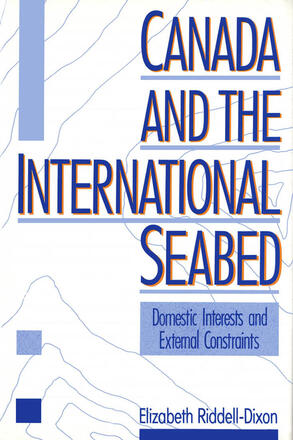
Canada and the International Seabed
Domestic Determinants and External Constraints
Description
This stronger alliance gave priority to negotiating an internationally acceptable treaty and safeguarding Canada's land-based nickel industry. A second coalition - officers from the Department of Finance, the Department of Industry, Trade, and Commerce, and the Ministry of State for Science and Technology - contended that the push for quantitive restrictions diverted attention from the more crucial areas of protection of technological and financial resources. Riddell-Dixon argues that the dominant coalition succeeded because of ministerial support, structural and functional advantages, and an effective choice of tactics. Consequently they were able to manage other domestic sources of foreign policy. Canada and the International Seabed addresses several debates central to Canadian foreign policy, including the relative importance of domestic determinants and international constraints, the nature of intra-governmental decision-making, the relationship between government decision-makers and interest groups, the role of provincial governments in foreign policy, and the role of international conferences in solving global problems.
Reviews
"The author makes a significant and original contribution to the foreign policy sector of this field of scholarship." Douglas Johnston, Faculty of Law, University of Victoria.